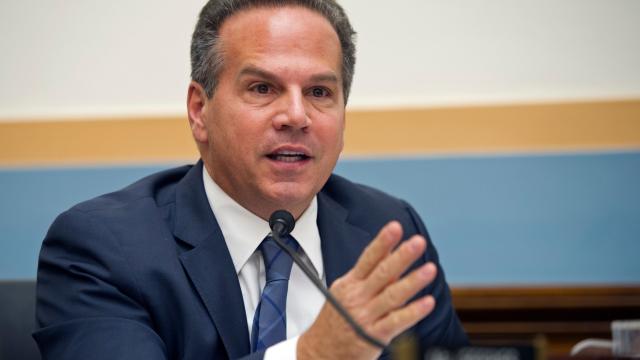Over the past week, the two U.S federal agencies with mandates to enforce antitrust law—the Department of Justice and the Federal Trade Commission—have apparently been divvying up Silicon Valley for potential probes. Reports have indicated that the DOJ has scooped up responsibility for Google and Apple, while the FTC could be going after Amazon and Facebook.
Now, according to CNN Business, the House Judiciary Committee is launching what it said would be a “top-to-bottom” antitrust investigation in the tech industry, with all four of the aforementioned companies obvious potential targets.
Congress is more limited in its ability to directly go after tech behemoths than either the DOJ or the FTC—it lacks the power to launch Ma Bell-style breakups of individual firms or impose fines—but as CNN noted, it can “compel testimony from executives, gather documents and force public debate.”
In other words, members of Congress can not only generate further political headaches for any firms that get swept up in the probe, but they can use the hearings as an opportunity to build a case for any potential legislative response down the road.
CNN wrote that Democratic Representative David Cicilline (Rhode Island), who heads the committee’s antitrust subcommittee, said the investigation would focus on whether tech firms have amassed too much market power to the detriment of journalism, consumer privacy, and competition in the industry.
Cicilline also told the network that the committee’s move was in part intended to hold the DOJ and FTC’s feet to the fire, as the two agencies have regularly faced accusations that they have failed to aggressively enforce antitrust law in the past. Per CNN:
Key areas for the investigation include the tech industry’s impact on local journalism, consumer privacy and the ability for new startups to enter the marketplace, according to Cicilline. At the heart of the inquiry are concerns about what Cicilline called the companies’ “tremendous market power,” which in some cases he feels has led to their accumulating substantial political power.
Committee officials have notified Amazon, Apple, Google and Facebook of the coming investigation. Cicilline said he wants to hear from senior tech executives, and that he won’t hesitate to issue subpoenas to companies that fail to cooperate… “I don’t have a lot of confidence that [the DOJ and FTC] will get the job done,” Cicilline said.
Cicilline also cited Google’s 90 per cent control of search engine use, Amazon’s estimated 50 per cent share of the e-commerce market, and Facebook’s repeated “bad conduct” while talking with reporters on Monday, the Daily Beast wrote.
“A small number of dominant, unregulated platforms have extraordinary power over commerce, communication, and information online,” the Judiciary Committee told NBC News and other news outlets in a statement (signed by members of both parties). “Based on investigative reporting and oversight by international policymakers and enforcers, there are concerns that these platforms have the incentive and ability to harm the competitive process.”
“The Antitrust Subcommittee will conduct a top-to-bottom review of the market power held by giant tech platforms,” the statement continued. “This is the first time Congress has undertaken an investigation into this behaviour.”
As the New York Times noted, the House Judiciary move could also signal that legislators are beginning to consider overhauling antitrust laws—at a time when tech companies are facing a particularly hostile reception in much of DC.
Democratic politicians, including presidential candidates like Kamala Harris, have increasingly warmed to the idea that regulators should seriously look at breaking up some of the biggest players in the industry.
Republicans tend to be much more amenable to corporate consolidation, but the current administration has launched a mostly one-sided vendetta against tech companies over unfounded allegations they systematically suppress conservative views.
In turn, many tech companies have ramped up the amount of money they spend on lobbying considerably. Last year, some of the biggest players (including Google, Facebook, Amazon, Microsoft, Apple, and Twitter) dropped a combined $92 million plus on efforts to build political influence.
Google and Facebook set record spending of $31 million and $18 million respectively, while Amazon dropped $20 million and Microsoft spent $14 million. Apple spent around $10 million, a slight decrease, but Twitter spent over $1 million for the first time in the company’s history.
